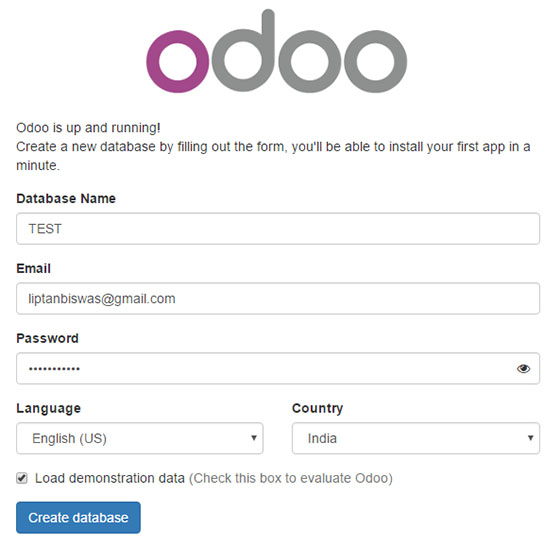
In this tutorial, we will show you how to install Odoo on Debian 10. For those of you who didn’t know, Odoo is one of the most popular and most powerful Open Source ERP business software based on the Python programming language. It is a web-based fully-featured application and comes with Open Source CRM, Point of Sales, Human Resource Management, Point of Sales, Billing and Accounting, Event Management, Email Marketing, Order Tracking, etc. This application is helpful to maintain ERP in any business.
This article assumes you have at least basic knowledge of Linux, know how to use the shell, and most importantly, you host your site on your own VPS. The installation is quite simple and assumes you are running in the root account, if not you may need to add ‘sudo‘ to the commands to get root privileges. I will show you through the step-by-step installation of Odoo on an Ubuntu Debian 10 (Buster).
Prerequisites
- A server running one of the following operating systems: Debian 10 (Buster).
- It’s recommended that you use a fresh OS install to prevent any potential issues.
- A
non-root sudo useror access to theroot user. We recommend acting as anon-root sudo user, however, as you can harm your system if you’re not careful when acting as the root.
Install Odoo on Debian 10 Buster
Step 1. Before we install any software, it’s important to make sure your system is up to date by running the following apt-get commands in the terminal:
sudo apt update sudo apt upgrade
Step 2. Installing the PostgreSQL.
Run the following command to install PostgreSQL:
sudo apt install postgresql
After the installation is complete, make sure to enable the PostgreSQL server to start automatically upon server reboot with:
sudo systemctl enable postgresql sudo systemctl start postgresql
Step 3. Installing Odoo on Debian 10 Buster.
We need to add Odoo apt repository to the Debian system:
wget -O - https://nightly.odoo.com/odoo.key | sudo apt-key add - echo "deb http://nightly.odoo.com/13.0/nightly/deb/ ./" | sudo tee /etc/apt/sources.list.d/odoo.list
Once the repository is added, install Odoo using the apt package manager:
sudo apt update sudo apt install odoo
After the installation of Odoo on Debian 10, the service is started automatically:
sudo systemctl status odoo
Step 4. Configure Odoo.
Now we edit Odoo’s configuration file and set the master admin password:
nano /etc/odoo/odoo.conf
Uncomment the ‘admin_passwd’ line, and set a password as shown below:
admin_passwd = YOUR_MASTER_PASSWORD

After that, restart the Odoo instance for the changes to take effect:
sudo systemctl restart odoo
Step 5. Accessing Odoo Web Interface.
Odoo will be available on HTTP port 8069 by default. Open your favorite browser and navigate to http://your-domain.com:8069 or http://server-ip-address:8069.

Congratulations! You have successfully installed Odoo. Thanks for using this tutorial for installing Odoo on Debian 10 Buster system. For additional help or useful information, we recommend you check the official Odoo website.